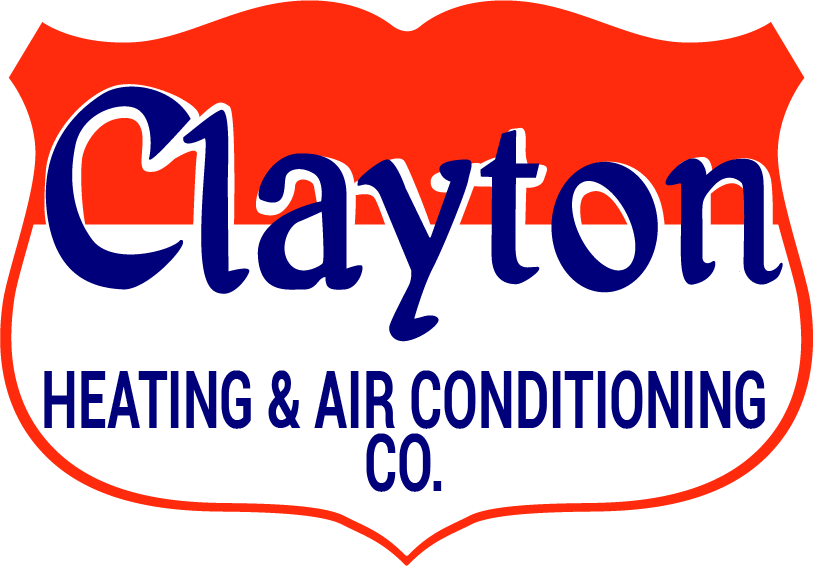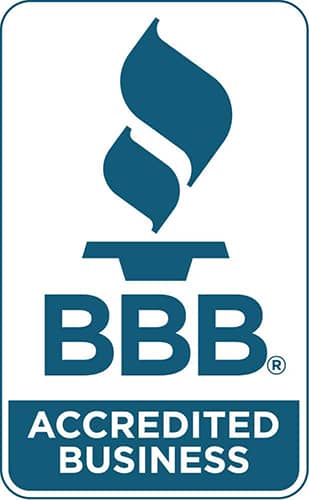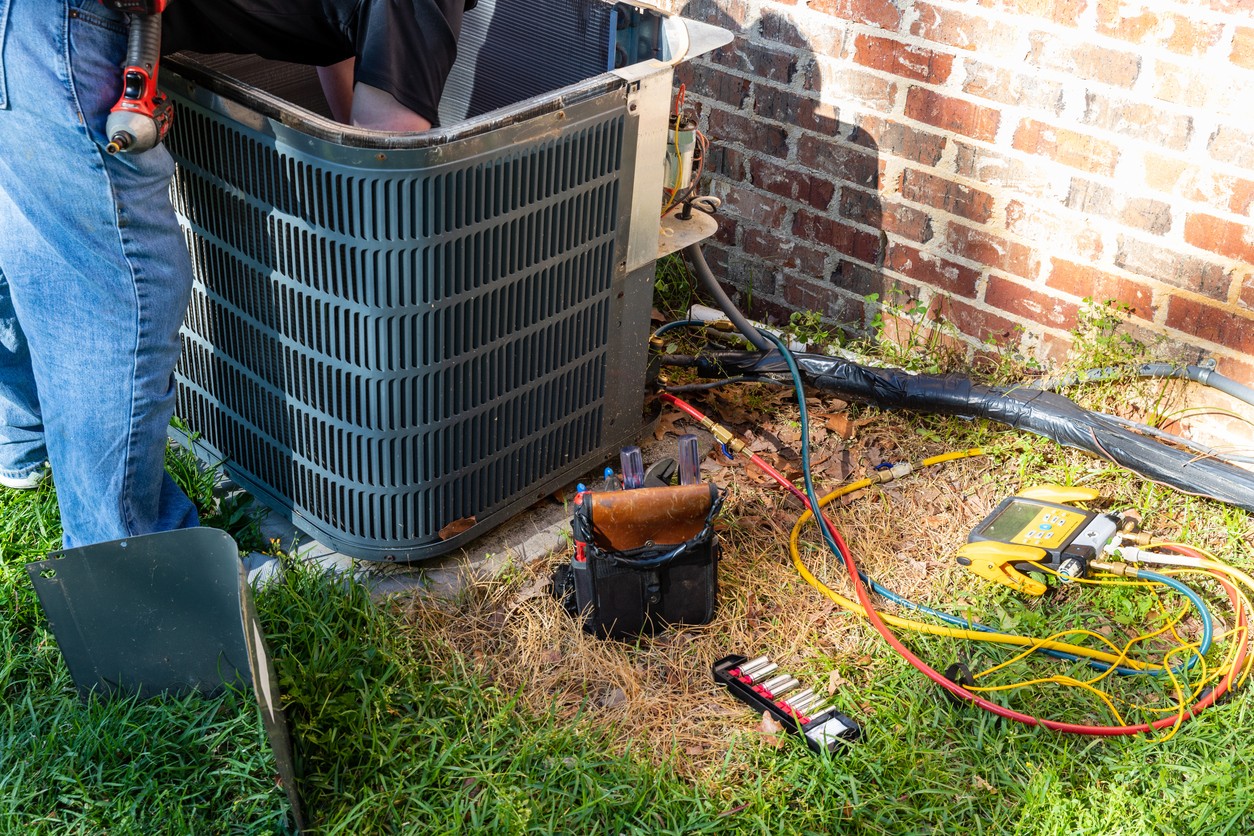As we head into the hottest summer months, homeowners in Youngstown and Northeast Ohio find themselves relying heavily on their air conditioning systems. But what happens when your trusty AC unit starts to falter? The age-old question arises: should you repair your existing air conditioner or invest in a replacement? This decision can have significant impacts on your comfort, energy bills, and long-term finances. In this comprehensive guide, we’ll explore the pros and cons of repairing versus replacing your air conditioning unit, helping you make an informed decision that suits your specific needs and circumstances.
Understanding Your AC Unit: Before diving into the repair vs. replace debate, you need to understand the basics of your air conditioning system. Most residential AC units have a lifespan of 10-15 years, depending on factors such as usage, maintenance, and environmental conditions. As your system ages, it may become less efficient and more prone to breakdowns. Recognizing the signs of a struggling AC unit is the first step in determining whether repair services or replacement is the best course of action.
Warning Signs Your Cooling System Needs Attention:
- Inconsistent cooling or warm air blowing from vents
- Unusual noises during operation
- Frequent cycling on and off
- Increased energy bills without a change in usage
- Excessive humidity in your home
- Foul odors coming from the unit or vents
Now that we’ve covered the basics, let’s look at the pros and cons of repairing your AC unit.
Pros of Repairing Your AC Unit:
- Cost-Effective Short-Term Solution: In many cases, repairing your AC unit is less expensive than replacing it entirely. Minor issues such as replacing a capacitor, refilling refrigerant, or fixing a loose electrical connection can often be resolved quickly and affordably. This approach can be particularly beneficial if you’re working with a tight budget or if the problem occurs during peak cooling season when immediate relief is needed.
- Extended Lifespan: Regular maintenance and timely repairs can significantly extend the life of your AC unit. By addressing issues promptly, you can prevent minor problems from escalating into major failures that might necessitate a full replacement. This proactive approach can add several years to your system’s operational life.
- Familiarity and Convenience: Keeping your existing unit means you’re already familiar with its operation and quirks. You won’t need to learn how to use a new system or potentially make modifications to your home to accommodate different equipment. This familiarity can be especially valuable if you’re comfortable with your current system’s performance.
- Environmental Considerations: Repairing your AC unit instead of replacing it can be more environmentally friendly in the short term. It reduces waste by keeping functional components in use and delays the need for manufacturing and transporting a new unit.
Cons of Repairing Your AC Unit:
- Diminishing Returns: As your AC unit ages, repairs may become more frequent and costly. There comes a point where the cumulative cost of air conditioning services outweighs the cost of a new, more efficient system. It’s essential to consider the long-term financial implications of continual repairs.
- Energy Inefficiency: Older AC units, even when repaired, are generally less energy-efficient than modern models. This inefficiency translates to higher energy bills and a larger carbon footprint. While an air conditioner repair might solve an immediate problem, it won’t address the underlying inefficiency of an aging system.
- Availability of Parts: For older AC units, finding replacement parts can become increasingly difficult and expensive. Manufacturers may discontinue certain components, making repairs more challenging and potentially more costly.
- Reliability Concerns: Even after a repair, an older AC unit may be more prone to breakdowns. This unreliability can lead to discomfort during hot weather and the stress of potential future failures.
Examples of Repairable Issues:
- Clogged or Dirty Filters: Regular cleaning or replacement can solve airflow problems and improve efficiency.
- Refrigerant Leaks: Small leaks can often be repaired and the system recharged.
- Faulty Capacitors or Contactors: These electrical components can be replaced relatively easily.
- Frozen Evaporator Coils: Thawing and cleaning the coils can often resolve this issue.
- Thermostat Malfunctions: Recalibrating or replacing a thermostat is typically a straightforward repair.
Now, let’s move on to the pros and cons of replacing your AC unit.
Pros of Replacing Your AC Unit:
- Improved Energy Efficiency: Modern AC units are significantly more energy-efficient than older models. The Seasonal Energy Efficiency Ratio (SEER) rating of new units is often much higher, which translates to lower energy consumption and reduced utility bills. Over time, these savings can offset the initial cost of replacement.
- Enhanced Comfort and Performance: New AC systems often provide more consistent cooling, better humidity control, and quieter operation. Features like variable-speed compressors and smart thermostats can fine-tune your home’s climate control, leading to improved overall comfort.
- Reliability and Peace of Mind: A new AC unit comes with a manufacturer’s warranty, typically covering parts and labor for several years. This warranty, combined with the inherent reliability of a new system, can provide peace of mind and protection against unexpected repair costs.
- Advanced Features: Newer models often come with advanced features such as Wi-Fi connectivity, zone control, and compatibility with smart home systems. These features can enhance convenience and allow for more precise control over your home’s climate.
- Environmental Benefits: Modern AC units use refrigerants that are more environmentally friendly than those found in older systems. Additionally, their higher efficiency means less energy consumption, which can reduce your carbon footprint.
Cons of Replacing Your AC Unit:
- High Initial Cost: The most significant drawback of replacing your AC unit is the upfront cost. A new system, including installation, can be a substantial investment, potentially running into thousands of dollars.
- Installation Disruption: Replacing an AC unit is a more involved process than a simple repair. It may require modifications to your home’s ductwork or electrical systems, leading to temporary disruptions in your daily life.
- Potential Oversizing or Undersizing: If not properly assessed, a new AC unit may be incorrectly sized for your home. An oversized unit can lead to short cycling and reduced efficiency, while an undersized unit may struggle to cool your home adequately.
- Learning Curve: New systems often come with different controls and features that may take some time to learn and optimize for your specific needs.
Examples of Issues Indicating Replacement is Necessary:
- Compressor Failure: The compressor is the heart of your AC system. When it fails, replacement is often more cost-effective than repair, especially in older units.
- Extensive Refrigerant Leaks: If your system has multiple or severe refrigerant leaks, especially if it uses an outdated refrigerant like R-22, replacement is often the best option.
- Cracked Heat Exchanger: In systems that provide both heating and cooling, a cracked heat exchanger poses safety risks and typically warrants full system replacement.
- Electrical System Failure: If the electrical system of your AC unit fails extensively, replacement may be more cost-effective and safer than attempting repairs.
- Age-Related Inefficiency: Even without a specific failure, if your AC unit is more than 10-15 years old and showing signs of decreased efficiency, replacement can often be justified based on energy savings alone.
Making the Decision:
When deciding between repair and replacement, consider the following factors:
- Age of the Unit: If your AC is over 10 years old, replacement might be more beneficial in the long run.
- Cost of Repair vs. Replacement: A common rule of thumb is the “5,000 rule”. Multiply the age of your unit by the repair cost. If it exceeds $5,000, consider replacement. For example, if your 8-year-old unit needs a $600 repair: 8 x $600 = $4,800. In this case, repair might be worthwhile. But if the repair cost was $700: 8 x $700 = $5,600, replacement could be the better option.
- Energy Efficiency: Compare the SEER rating of your current unit with new models. Significant improvements in efficiency could justify replacement.
- Frequency of Repairs: If you’re calling for repairs more than once or twice a season, it might be time to consider replacement.
- Future Plans: If you plan to move soon, a repair might be more appropriate. For long-term residence, investing in a new system could be more beneficial.
The decision to repair or replace your air conditioning unit is rarely straightforward. It requires careful consideration of various factors, including the age and condition of your current system, the cost and frequency of repairs, energy efficiency, and your long-term plans for your home.
While repairing your AC unit can be a cost-effective short-term solution, especially for minor issues or newer systems, it may not always be the most economical choice in the long run. Frequent repairs, declining efficiency, and the use of outdated technology can all point towards the benefits of replacement.
On the other hand, investing in a new AC system, though initially more expensive, can offer significant long-term advantages. These include improved energy efficiency, enhanced comfort, advanced features, and the peace of mind that comes with a warranty and reliable operation.
Ultimately, the right decision depends on your specific circumstances. Our HVAC service team can help you with come to the decision that works best for you and your home and budget.
Preventative Maintenance Service Can Prevent Costly Repairs
Regular maintenance services with a reliable HVAC company like Clayton Heating & Air Conditioning can help you avoid costly air conditioning repairs and premature replacements. These routine check-ups allow qualified technicians to identify and address minor issues before they escalate into major problems, ensuring your system operates at peak efficiency. During maintenance visits, professionals clean or replace filters, check refrigerant levels, inspect electrical connections, and lubricate moving parts. This proactive approach not only extends the lifespan of your HVAC equipment but also improves its energy efficiency, leading to lower utility bills. Moreover, well-maintained systems are less likely to break down during extreme weather, providing reliable comfort when you need it most. By investing in regular maintenance with an HVAC contractor, homeowners can save money on their central air system in the long run, avoid unexpected breakdowns, and postpone the need for a complete system replacement.
Premier AC Repair and Installation in Youngstown, Ohio
Ensure your home stays cool and comfortable all summer long with Clayton Heating & Air Conditioning‘s expert air conditioning repair, installation and emergency services. Our team of highly trained HVAC technicians is ready to handle any issue, from routine maintenance to complex repairs, ensuring your HVAC system runs efficiently and reliably. Don’t let the heat get the best of you—contact Clayton Heating & Air Conditioning today for outstanding customer service and enjoy peace of mind knowing your cooling needs are in capable hands. Call us now to schedule your HVAC service appointment and experience the difference quality service can make!


